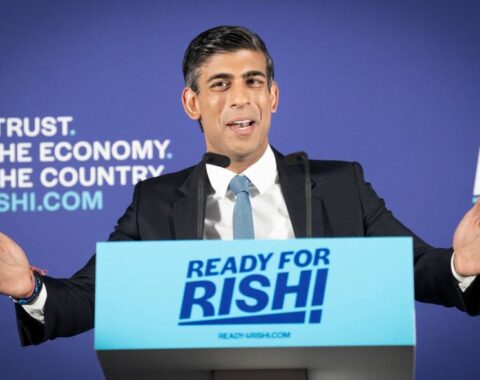Article Published in SCC Online.
Introduction
The Government has introduced various schemes, perhaps which can be called necessary reforms, in various sectors to deal with the situation created today by the COVID-19 pandemic[1] which can adequately be described as an unprecedented anomaly especially for the developing nations of the world. In the wake of the pandemic India is being introduced to various legal and socio-economic reforms by the Government of India to help the already struggling economy to gather the much sought after momentum. The 5th tranche of the press conference held on 17.05.2020 focused on bringing in reforms in specific laws which shall be brought to life through Ordinances in an attempt to provide businesses in India to recover from the aberrance caused by the pandemic.
Since Lockdown 1.0 the business owners have been waiting with baited breath, for a financial relief package to ease the growing stress especially on the Micro, Small and Medium Enterprises (“MSME”)[2]. The Government has faced various difficulties as well, however, as we enter Lockdown 4.0 the Government has introduced certain amendments which was an imminent need of the hour to give a sigh of relief to the business fraternity in the country. Prima facie these amendments seem to provide short term as well as long term stability to businesses across India for a sustainable growth model which shall enable such business to revive from the losses suffered during the pandemic. An overview of the proposed amendments which are sought to be introduced are:
1. A fresh outlook on the Insolvency and Bankruptcy Code, 2016
The Government of India after taking into account the backlog of pending cases mounting at National Company Law Tribunal (“NCLT”) and the National Company Law Appellate Tribunal (“NCLAT”) have proposed to introduce an Ordinance enunciating as under:
- No fresh matters shall be initiated of insolvency for a period of 1 year. This shall reduce the workload since due to the implementation of lockdown the companies have suffered grave loss.
- Any default caused in the event of death of a person due to COVID-19 shall strictly be prohibited to come under the definition of default as per Section 3(12) of the Insolvency and Bankruptcy Code, 2016[3].
- The limit of default for Micro, Small and Medium Enterprises shall be increased from one lakh to one crore for a specified time period which shall be specified in the notification by the centre in consonance with Section 240-A(2) which shall be in the interest of public.
These reforms shall give a breather to the MSMEs and even to other companies facing difficulties in carrying out their regular business due to the pandemic. It is pertinent to note that it was the present Government which had introduced the long sought after Insolvency and Bankruptcy Code (“IBC”) in 2016 to subdue the woes of the companies and their shareholders and equipped them with an efficient and reliable infrastructure to avail their legal remedies. This was done in an effort to reduce the burden from the various High Courts and Bankruptcy Tribunals across the country and efficiently deal with matters relating to Companies Act, 1956 and bankruptcy laws. Since its inception the NCLT and the NCLAT have managed to dispose of 41% of the total matter filed matters which seems to be satisfactory and has greatly helped in achieving the objective of the IBC[4]. However, the Government felt that in order to further increase efficiency and further reduce the burden mounting on the Tribunals the above- mentioned reforms were imperative especially in light of the COVID-19 pandemic.
This shall further ease the stress at least for a year, on start-ups and MSMEs who may now focus on the functioning and services to be provided which further may lead to increase their quality and efficiency of work. Further the increase in the default limit from 1 lakh to 1 crore will also put such Companies at ease and mitigate the risk of getting engaged in legal proceedings.
2. Amendments with reference to Companies Act, 2013
The Government has taken a step forward to de-criminalise various sections of the Companies Act, 2013 which criminalised procedural non-compliances. For example Section 99 of the Companies Act, 2013[5] states:
Section 99. Punishment for default in complying with provisions of Sections 96 to 98.–
If any default is made in holding a meeting of the company in accordance with Section 96 or Section 97 or Section 98 or in complying with any directions of the Tribunal, the company and every officer of the company who is in default shall be punishable with fine which may extend to one lakh rupees and in the case of a continuing default, with a further fine which may extend to five thousand rupees for every day during which such default continues.
This provision and likewise other penal provisions with respect to non-compliances shall be de-criminalised for a specified period which shall be mentioned in the Ordinance. Further the Government in an effort to further de-congest the Courts has stated that the expert panel already introduced by the Ministry of Corporate Affairs (“MCA”) shall adjudicate matters regarding compoundable offences under the Companies Act, 2013[6]. Earlier, only 18 sections were under the jurisdiction of the said expert panel, which shall now increase to 58 and those particular provisions would be specified in the Ordinance.
These reforms may lead to easing the business to be carried out by the various companies in India and may increase the work efficacy which shall further lead to bring our economy at pace which is effected tremendously due to the pandemic.
3. Merger of PSUs/PSEs on the horizon?
An introduction of private sector companies to conduct business with respect to areas which earlier restricted Public Sector Undertaking (“PSUs”) and Public Sector Enterprises (“PSEs”) is another major reform brought in by the Government of India. The PSUs enjoyed a certain monopoly in these markets however with this fresh induction of private companies will disrupt their earlier enjoyed market share in these specified areas[7]. It was further specified in the press conference held by the Finance Minister that only 4 or less PSUs/PSEs shall function in strategic sector and the ones having more than 4 shall undergo mergers to form a large scale PSU/PSE.
For instance, if there are 10 PSUs/PSEs in a particular sector, the extra 6 shall be merged with any of the others to form at least 1 or 4 large scale PSUs. In view of the above it is apparent that this shall lead to increase in mergers of several PSUs/PSEs in India.
Conclusion
Notwithstanding the fact that this is a great step forward to decrease the workload of the Courts in India this may lead to delay in legitimate insolvency proceedings further being a refuge/relief for wilful defaulters and a vice for bona fide financial and operational creditors[8]. Further this step of the Government of India shall be a robust mechanism for institution of new start-ups, the PSUs once ruling the coal/aviation and certain other sectors shall now have to share their market with the private companies and/or the start-ups which shall now enter the market increasing employment and quality of services provided by them. India is a developing nation and with the proliferation of the coronavirus which lead to causing this pandemic has brought the Indian economy to a standstill. These reforms have given a new hope to build the economy of our country with the neoteric structure introduced, which shall require cooperation of the public and private sector enterprises along with the judiciary and the public at large.
*Senior Associate at Vardharma Chambers and may be reached at vidula@vchambers.in
[1] https://www.undp.org/content/undp/en/home/coronavirus.html
[2].https://msm.gov.in/know-about-msme
[3] Insolvency and Bankruptcy Code, 2016





